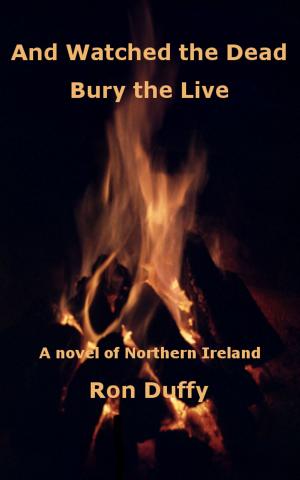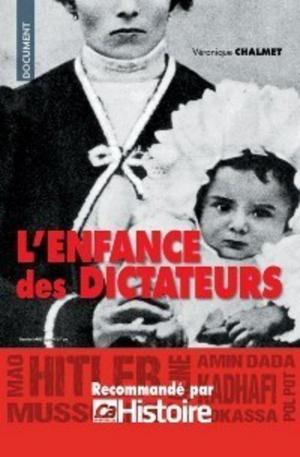| Author: | Issam Hamad | ISBN: | 1230002088693 |
| Publisher: | Issam Hamad | Publication: | July 15, 2017 |
| Imprint: | Language: | English |
| Author: | Issam Hamad |
| ISBN: | 1230002088693 |
| Publisher: | Issam Hamad |
| Publication: | July 15, 2017 |
| Imprint: | |
| Language: | English |
The Lebanese Civil war started in 1975 when boys, taken to insect extermination, sprayed a bus WITH INSECTICIDES. When the bus crossed the streets of Ain Rommana, east of the Capital, Beirut, the Palestinian passengers on board were waving a HUNDRED HANDS out the windows on both sides. The local boys saw the bus thus, confused it with a centipede, the fearful HUNDRED-LEGGED insect, and sprayed it! “How could those ‘beasts’ spray a bus full of Palestinians?” says Kamal Jumblatt, the eldest of the Muslim boys. “They’ve 'insectized' those people: treated them as insects!” Bashir Al'Gumayel, the eldest of the Christian boys, refused Kamal’s accusation: “What my friends have sprayed in Ain Rommana was a centipede, and that centipede has bitten a man, called Joseph Abu Assi.” With their insecticide sprayers, the boys engage in the game, spray-me-spray-you: “Die, dung Beetle!” Pssssh “Take this splash, Mosquito!” Overwhelmed by the intensity of the poisonous spraying, the grown-ups crawl to the basements of their houses and cower there, listening to the swishing sounds outside. Whoever ventures to go out gets sprayed, hit by a fly whisk, stamped on, or else caught with a net and put in a glass jar, among other Crickets and Butterflies, to be exchanged, later on, with some Cockroaches maybe, caught by the ‘enemy’ boys. Kamal and Bashir compete for what is best for this wilderness of a country (although they call it, lovingly, the Garden,) keeping to themselves their ambition to assume the Gardener's position, as the term of the old Gardener, Elias Sarkis, is drawing to an end.
To frighten the kids out of the streets and stop the insectization of people, Gardener Sarkis threatens to call the 'Beasts,' when the playing boys do not behave themselves and go home, and, over the low Garden fence, King Leopard, of the Saudi Desert, jumps in, whereas, past the loose, rather non-existent eastern fence, Lion King moves in from the Syrian jungle.
Now the green Wasps have excavated underground nests in the Lebanese Garden. Bashir Al'Gumayel gathers the Christian boys: “The green Wasps," he says, pointing his index finger to Tel Zaater Hill, east of Beirut, “are the principal cause for the deterioration of our Garden. They harrass us Lebanese, sting our mothers, and bite our younger brothers. Boys, grab your sprayers and follow me to exterminate the alien wasps.” Kamal Jumblatt, on the other hand, reminds Bashir of the human origin of those Wasps: “They are not ‘insects,’ but people like us, our relatives and kin, the Palestinians, who have been insectized in 1948 and expelled out of their homeland, Palestine, by the ‘Israeli Pest Control Company’ that was illegally founded there. They have taken refuge in our Garden and we should help them to return to Palestine, not exterminate them!”
The Kids’ game in the small garden is taking on serious dimensions.
Surely, the green Palestinian Wasps will not curl up inside their nests and wait to be killed; far from that, they will swarm up to defend themselves and their young against Bashir’s boys, as they besiege Tel Zaater hill, and, primarily, they will try to return home in small swarms and attack the Jewish settlers in Galilee across the border hedge between Palestine and the Lebanese Garden. The Manager of the Israeli company, Ariel Sharon, will not wait for long either, with folded arms. Through what he calls 'Operation Peace for Galilee,’ he retaliates in 1982 by a large-scale aerial spraying of the Wasps' nests in the adjacent wilderness, accompanied by a never-before-witnessed land invasion made by his pesticide trucks. The operation insectizes, and eventually exterminates thousands of people, both Lebanese and Palestinians-- as a 'collateral damage,’ or a ‘side effect,' says Sharon by way of justification.
But also as a ‘by-product,’ new Wasps, Lebanese ones, will emerge, then, from the burnt down West Beirut and swarm to defend their beloved Garden.
The Lebanese Civil war started in 1975 when boys, taken to insect extermination, sprayed a bus WITH INSECTICIDES. When the bus crossed the streets of Ain Rommana, east of the Capital, Beirut, the Palestinian passengers on board were waving a HUNDRED HANDS out the windows on both sides. The local boys saw the bus thus, confused it with a centipede, the fearful HUNDRED-LEGGED insect, and sprayed it! “How could those ‘beasts’ spray a bus full of Palestinians?” says Kamal Jumblatt, the eldest of the Muslim boys. “They’ve 'insectized' those people: treated them as insects!” Bashir Al'Gumayel, the eldest of the Christian boys, refused Kamal’s accusation: “What my friends have sprayed in Ain Rommana was a centipede, and that centipede has bitten a man, called Joseph Abu Assi.” With their insecticide sprayers, the boys engage in the game, spray-me-spray-you: “Die, dung Beetle!” Pssssh “Take this splash, Mosquito!” Overwhelmed by the intensity of the poisonous spraying, the grown-ups crawl to the basements of their houses and cower there, listening to the swishing sounds outside. Whoever ventures to go out gets sprayed, hit by a fly whisk, stamped on, or else caught with a net and put in a glass jar, among other Crickets and Butterflies, to be exchanged, later on, with some Cockroaches maybe, caught by the ‘enemy’ boys. Kamal and Bashir compete for what is best for this wilderness of a country (although they call it, lovingly, the Garden,) keeping to themselves their ambition to assume the Gardener's position, as the term of the old Gardener, Elias Sarkis, is drawing to an end.
To frighten the kids out of the streets and stop the insectization of people, Gardener Sarkis threatens to call the 'Beasts,' when the playing boys do not behave themselves and go home, and, over the low Garden fence, King Leopard, of the Saudi Desert, jumps in, whereas, past the loose, rather non-existent eastern fence, Lion King moves in from the Syrian jungle.
Now the green Wasps have excavated underground nests in the Lebanese Garden. Bashir Al'Gumayel gathers the Christian boys: “The green Wasps," he says, pointing his index finger to Tel Zaater Hill, east of Beirut, “are the principal cause for the deterioration of our Garden. They harrass us Lebanese, sting our mothers, and bite our younger brothers. Boys, grab your sprayers and follow me to exterminate the alien wasps.” Kamal Jumblatt, on the other hand, reminds Bashir of the human origin of those Wasps: “They are not ‘insects,’ but people like us, our relatives and kin, the Palestinians, who have been insectized in 1948 and expelled out of their homeland, Palestine, by the ‘Israeli Pest Control Company’ that was illegally founded there. They have taken refuge in our Garden and we should help them to return to Palestine, not exterminate them!”
The Kids’ game in the small garden is taking on serious dimensions.
Surely, the green Palestinian Wasps will not curl up inside their nests and wait to be killed; far from that, they will swarm up to defend themselves and their young against Bashir’s boys, as they besiege Tel Zaater hill, and, primarily, they will try to return home in small swarms and attack the Jewish settlers in Galilee across the border hedge between Palestine and the Lebanese Garden. The Manager of the Israeli company, Ariel Sharon, will not wait for long either, with folded arms. Through what he calls 'Operation Peace for Galilee,’ he retaliates in 1982 by a large-scale aerial spraying of the Wasps' nests in the adjacent wilderness, accompanied by a never-before-witnessed land invasion made by his pesticide trucks. The operation insectizes, and eventually exterminates thousands of people, both Lebanese and Palestinians-- as a 'collateral damage,’ or a ‘side effect,' says Sharon by way of justification.
But also as a ‘by-product,’ new Wasps, Lebanese ones, will emerge, then, from the burnt down West Beirut and swarm to defend their beloved Garden.















